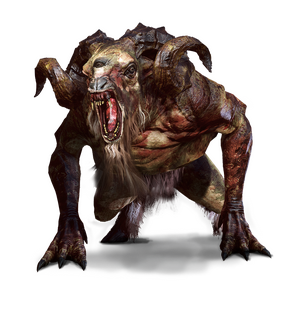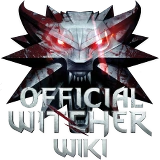| Chorts | |
|---|---|

| |
| Details | |
Class |
Relict |
Variations |
Fiend Howler |
Occurrence |
Near Lindenvale White Orchard |
Immunity |
Aard |
Vulnerable to |
Devil's puffball Relict oils |
Tactics |
Charging their prey |
Loot |
Chort hide Chort mutagen Raw meat Monster brain Monster blood Monster bone Monster claw Monster ear Monster eye Monster hair Monster heart Monster liver Monster saliva Monster tongue Monster tooth |
The bestiary entry for chorts can be acquired by reading "Beasts of the Tukaj Foothills".
Associated quest[ | ]
Bestiary entry[ | ]
- Chorts are smaller than fiends, true. But still big enough to kill.
- — Agnes Thistle, herbalist from the Black Forest
- Chorts are the somewhat smaller kin of fiends and bumbakvetches. Yet any witcher who thinks their diminutive stature means they present no danger commits a grave error — the kind that can end his career permanently. These denizens of dark and ancient woods are some of the most dangerous monsters known to man.
- Legends often mistake chorts for sylvans, ascribing to them the ability to speak, stand on two legs, gobble up cabbage, play pranks and work mischief around the household. The arrival of a true chort in a region soon puts an end to such tales. The creatures do not speak, at best communicating with each other through grunts, snorts and moans. They get about on four legs and as for their "mischief"... they destory farmsteads, devouring anything that can be devoured, including cabbage, if such is available, but also extending to poultry, pork, the family dog and then the family itself.
- Chorts fight with little finesse, running straight towards their opponent and trying to know him to the ground with the force of their charge. After downing their foe they bite, kick and strike with their claw-tipped paws. Due to their size and four-legged posture, they are mistly unperturbed by the force of the Aard Sign, and the regenerative powers of their body allow any wounds they recieve to heal at a rapid pace.
Notes[ | ]
- Killing seven cows or more in White Orchard will summon a chort.
- In many Eastern European languages, including Polish, 'Chort' directly translates to 'Demon'.
